Nose
The Nose Knows
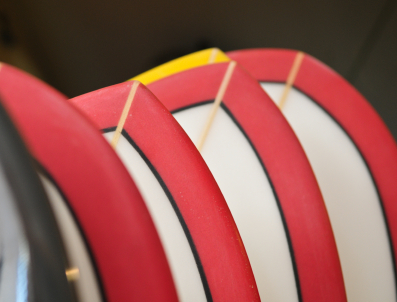 The nose is the front of the surfboard. This aspect of surfboard design plays a large role when dropping into waves. Noses will vary in width, curvature and thickness. There are two basic types of surfboard nose:
The nose is the front of the surfboard. This aspect of surfboard design plays a large role when dropping into waves. Noses will vary in width, curvature and thickness. There are two basic types of surfboard nose:
Pointed Nose
Most high performance boards, like thrusters, have a pointed nose. The pointed shape adds more rail curve to the plan shape when compared to a round nose longboard. This comes in handy when the head of the board is digging into the water, as when dropping into a steeper waves, to help keep the board from pearling. Because there is less volume, it is easier to duck dive a wave where as a round nose requires a lot more force to shovel the nose under water.
Rounded Point Nose
This is a transition shape between a pointed nose and full round nose. The extra volume in the front helps make catching waves and balancing easier. They are a little harder to maneuver however so keep that in mind when you are looking for a surfboard.
Round Nose
This shape allows for the front of the board to have more surface area, giving the board more stability. Longboards typically have a round nose for the purpose of allowing the surfer to nose-ride. Round nose boards make it easier to paddle, glide, and plane on the surface because it helps to keep more of the surfer out of the water.
Nose Riding Nose
Some surfboards come with a nose designed to be ridden on. Longboards that are ridden on the nose where a surfer dangles one or both feet over the front of the surfboard. These noses tend to be thicker to support the additional weight.
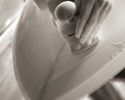
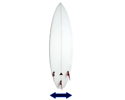
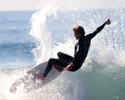


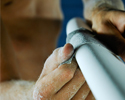
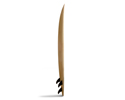
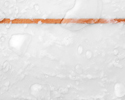
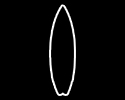
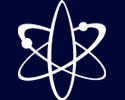
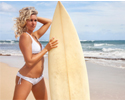

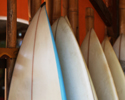
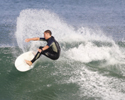
1 Comment